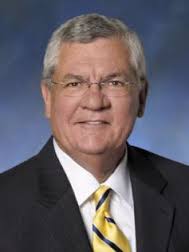BBG Watch Commentary
 The lack of adequate advance notice to our audiences is inexcusable, said numerous Voice of America (VOA) program hosts and broadcasters from other Broadcasting Board of Governors (BBG) media entities when the BBG’s International Broadcasting Bureau (IBB) told them to stop many VOA, Radio Free Asia (RFA) and Radio Free Europe / Radio Liberty (RFE/RL) shortwave and some medium wave radio transmissions to Asia, Middle East, and Belarus — the last dictatorship in Europe.
The lack of adequate advance notice to our audiences is inexcusable, said numerous Voice of America (VOA) program hosts and broadcasters from other Broadcasting Board of Governors (BBG) media entities when the BBG’s International Broadcasting Bureau (IBB) told them to stop many VOA, Radio Free Asia (RFA) and Radio Free Europe / Radio Liberty (RFE/RL) shortwave and some medium wave radio transmissions to Asia, Middle East, and Belarus — the last dictatorship in Europe.
Once again, IBB bureaucracy has shown little respect for audiences, broadcasters, and radio as a medium of program delivery by denying audiences and program hosts even the courtesy of having sufficient advance notice as to the exact date of ending shortwave transmissions, which in our view should not have been ended. Many poor, isolated communities in countries without free media have been affected by these cuts, including some that are hotbeds of terrorism.
The following email came from a radio listener in one of the most remote areas of Pakistan which is a Pakistani Taliban’s stronghold for terrorism.
“Say my complement to the whole team of voa.it is stated the ur programms day break asia, international edition does not come to me any more and i m very upset,so wht happened to ur programs.plz reply and guide me Muhammad Laiq frm Swat, Pakistan.”
IBB bureaucrats like to refer to anyone who supports radio as “traditionalists” and to radio as “legacy medium.” They have often implied that supporters of radio are against new media. Nothing could be further from the truth, as the following commentary from Joe Bruns clearly shows. Supporters of radio are some of the strongest advocates of new media because they know that serious radio journalism provides some of the best online news content.
We would add just one point to Mr. Bruns’s excellent arguments. IBB claims that the latest shortwave cuts will save about $1.6 million.
$1.6 million is nothing compared to the multimillion dollar cost of the nearly 40% growth in IBB bureaucratic positions in the last several years while numerous broadcasts and journalistic positions were also cut. Millions of dollars were spent by IBB on developing new media, which is essentially free and where success or failure are determined largely by the quality of content. VOA English News Twitter has now nearly ten times fewer Followers as the U.S. State Department Twitter account and is even behind UN Peacekeeping in the number of Twitter Followers.
But the most disturbing fact is that this large and constantly growing bureaucracy is cutting a lifeline to the most vulnerable individuals and groups: the poorest, the most oppressed and the most fearful — those who have no other means of getting uncensored news and information. IBB is taking $1.6 million from these groups rather than from its overblown budget and personnel. Radio audiences in countries without free media should be the last places for making cuts.
JOE BRUNS: It was ‘on my watch’ as Acting Director of VOA that in 1994 we put scripts and ultimately multi-language audio files on the Internet, the first international broadcaster to do so. I was a believer then, as I am now, of the power of the ‘new media.’ But we don’t live in a world where any single medium can be relied upon to the exclusion of other, older ones.
While I don’t fully understand Matt Armstrong’s [BBG Governor, the chair of the Special Committee on the Future of Shortwave Broadcasting for BBG] statement [“You can’t censor the Internet.”], I’m sure he realizes that the Internet can be, and routinely is, blocked or censored by repressive regimes. And it is precisely when direct communication to the people is most critical that they are most likely to engage in it. Television and radio transmission, even including the hoary medium of short-wave have their application, particularly during times of crisis.
Radio also has one advantage over the Internet and even television: in times of emergency it is often the only means of mass communications left standing. Cell phones, computers and televisions may go silent and dark, but radio, which is capable of broadcasting ‘over the horizon’ can still reach listeners of radios powered by dry-cell, car batteries or alternative power sources. Even in the United States, during periods of natural disaster, radio is often the only communications tool left working.
So, definitely, utilize new media, and make increasing use of television with its powerful visual impact. Utilize cell phone technology and text messaging. But, it is wise to hold in reserve some capacity to reach people when every other device becomes a ‘brick.’
Joseph Bruns recently announced his retirement from WETA, the public television and radio station serving the Washington DC metropolitan area, where he served as Executive Vice President and Chief Operating Officer since 2001. Prior to joining WETA, Mr. Bruns was Chief Financial and Chief Administrative Officer at KQED in San Francisco, from 1998 until 2001.
Mr. Bruns began his broadcasting career with the Voice of America in 1986, first serving as Executive Assistant to the Director of VOA, later as Chief of Staff and Deputy Director. From January 1993 until March 1994, Mr. Bruns was Acting Director of VOA and Associate Director for Broadcasting of USIA. During that period, Mr. Bruns was responsible for placing VOA broadcast scripts on the Internet, becoming the first international broadcaster to do so. Later multiple language audio files were added. He also oversaw a major expansion of VOA’s worldwide broadcast facilities.
Mr. Bruns served on the interagency team to combine all US international broadcasters under the Broadcasting Board of Governors. He served as the first Director of the International Broadcasting Bureau.
Prior to joining the Voice of America, Mr. Bruns worked in the USIA Bureau of Educational and Cultural Affairs.
The following information is reposted from Joe Bruns’s blog.
Broadcasting on the Internet: The Early Years
Thursday, February 6, 2014
In 1993, as acting Associate Director of Broadcasting for USIA, I moved to put the Voice of America and WorldNet on the emerging ‘Internet.’
I was impressed that there were more than 1.7 million computers world-wide hooked up to the Internet. Here’s the memorandum I sent to the USIA Director, Joe Duffy, informing him of our plan.
United States Information Agency
INFORMATION MEMO
October 12, 1993
MEMORANDUM FOR: The Director
FROM: B – Joseph B. Bruns
SUBJECT: Internet Delivery of Broadcast Schedules and Program MaterialsSummary
As you know, the Bureau of Broadcasting is actively investigating new methods for delivering our products to supplement our traditional delivery media of direct shortwave radio broadcasting
and program feeds to USIS Posts and affiliated stations. In particular, we are interested in offering broadcast schedules, program transcripts and digitally-encoded excerpts of our broadcasts to users of the international research Internet. This memo provides a brief overview of our current thinking and
direction.Background
Until now, the Broadcasting staff has used the Internet primarily to gather information. An electronic gateway, established several years ago between the Internet and our computer System for News and Programming (SNAP), serves as a channel of communication between SNAP users and news sources: our Polish broadcast service receives
a daily “newspaper,” Donosv. directly from its “publishers” in Warsaw; at least one commercial news provider, Baltic News Service, sends its product to the VOA central newsroom via the Internet; the
Radio Free Europe/Radio Liberty Daily Report is electronically transmitted each morning from Munich to Bureau of Broadcasting recipients.Perhaps the most dramatic use of the Internet as a source of information occurred in August 1991, during the attempted coup d’etat in the former Soviet Union, when democratically-inclined computer scientists established a clandestine relay between their internal computer network and SNAP. VOA received more than 100 electronic mail messages in Russian and English, including the full texts of Russian President Boris Yeltsin’s official edicts-which
sometimes reached us hours before their English translations were disseminated by the commercial news agencies.The Internet has proved itself to be a valuable source of information. Now we are beginning to tap the potential of the Internet as a medium for disseminating information. For example, we currently use Network News (a.k.a. USENET) to distribute program and frequency schedules for our radio broadcasts. More ambitious projects are currently being planned.
Current Plans
The rapid growth of the Internet-now more than 1.7 million computers in more than 100 countries were connected to the Internet as of July of this year—makes it an increasingly attractive vehicle for
disseminating transcripts of our programs and audio “sound bites” from our radio broadcasts along with marketing information and program schedules.Until now, we have had no way to offer VOA and Worldnet products to Internet users on demand. But with the assistance of the Agency’s Office of Technology, we are preparing to connect SNAP directly to the Internet next month. This will make it possible for us to provide interactive services to a worldwide audience of Internet users in academic institutions, foreign governments and the news industry.
Before the end of the year, we will establish a public file server on the Internet that will offer a selection of program and frequency schedules, marketing information and selected English transcripts of VOA and Worldnet programs. We will also undertake an active public relations effort to notify Internet users of the availability of these products. We will secure clearance from the Office of the General Counsel before making any program materials available through this medium to make certain our actions conform to the restrictions on the domestic dissemination of Agency products contained in the Smith-Mundt Act.
We intend to extend this service next year by providing short audio selections in various languages that will be encoded into the most popular digital audio file formats for industry-standard personal computers. (At this time, dissemination of video through the Internet appears to be impractical for technical reasons.) We are also investigating the feasibility of offering foreign-language radio and television scripts to Internet users by encoding them into Unicode, an emerging de facto standard for multilingual text.
Other Vehicles
In addition to using the Internet for program dissemination, we are exploring the use of existing satellite communication channels to offer textual materials to affiliated stations. We are completing preparations for a pilot project that will use current leased audio circuits to transmit program content and schedule information in Spanish and Portuguese to VOA affiliates in Latin America. We are also investigating the possibility of developing a much broader foreign language newswire service using the multilingual character encoding system described above.
We believe these efforts to utilize new communication technologies will help us establish entirely new audiences for the Bureau of Broadcasting’s program products, significantly increasing our ability to serve as a full-service news and information provider to the world.
jb

Comments are closed.